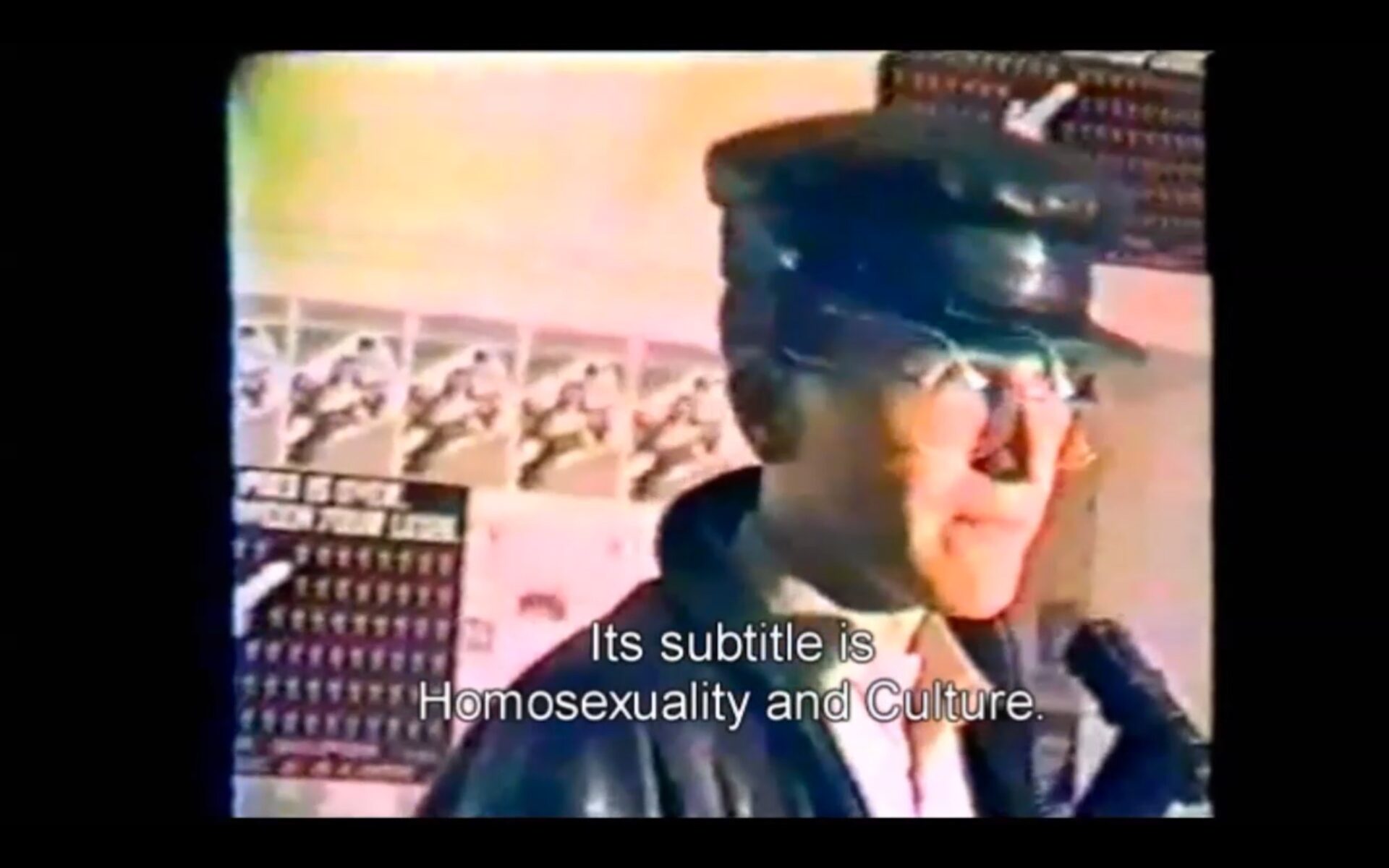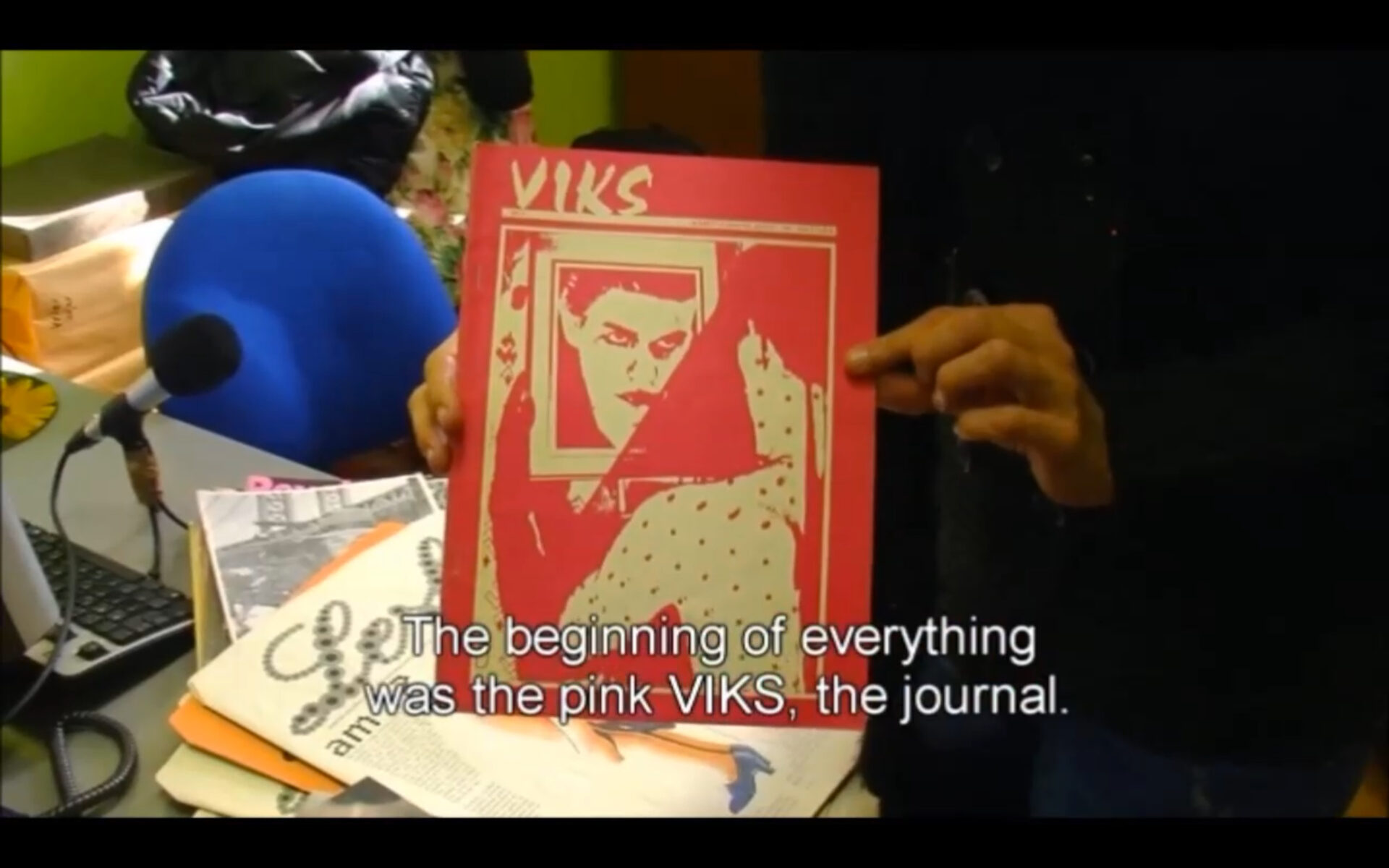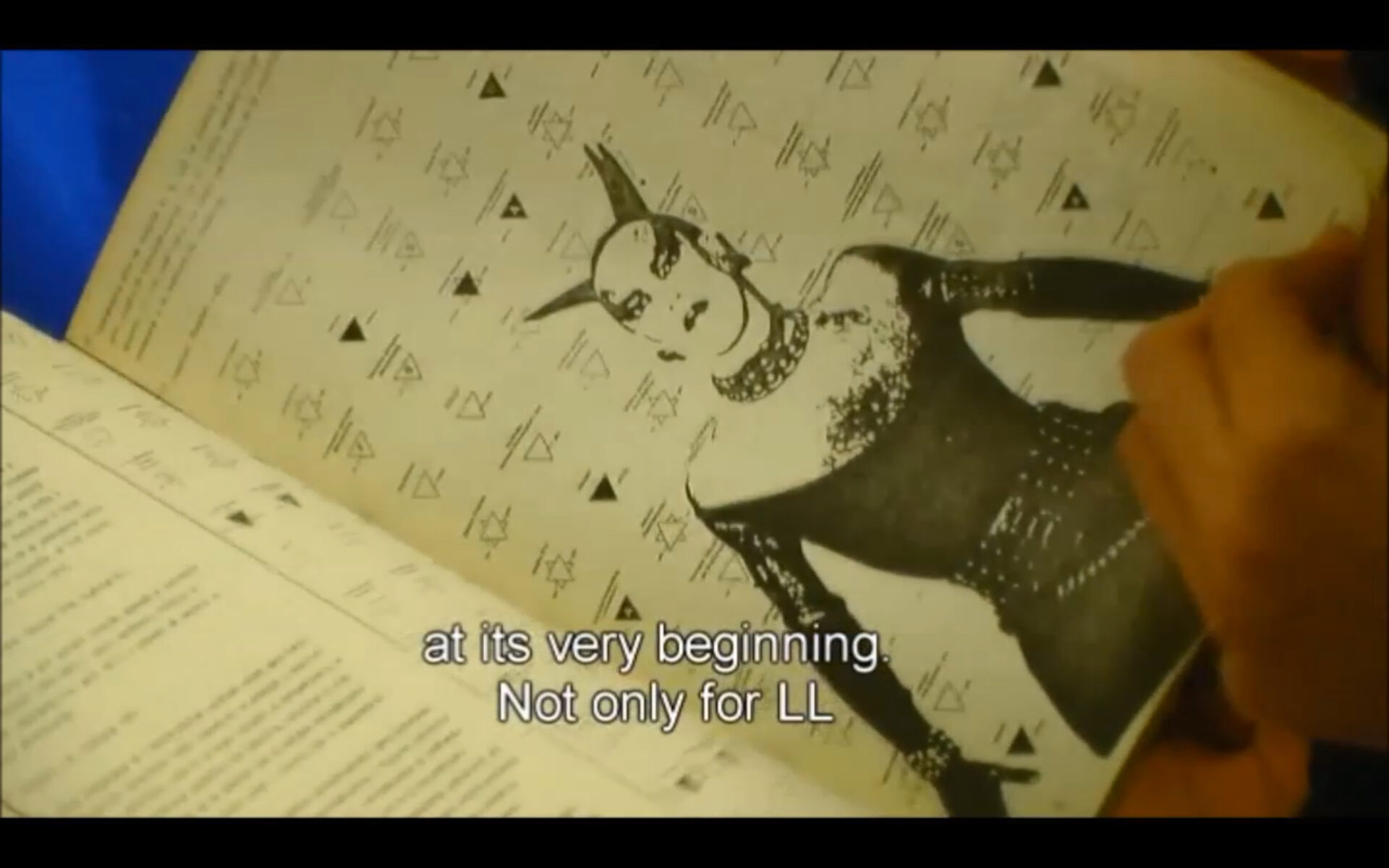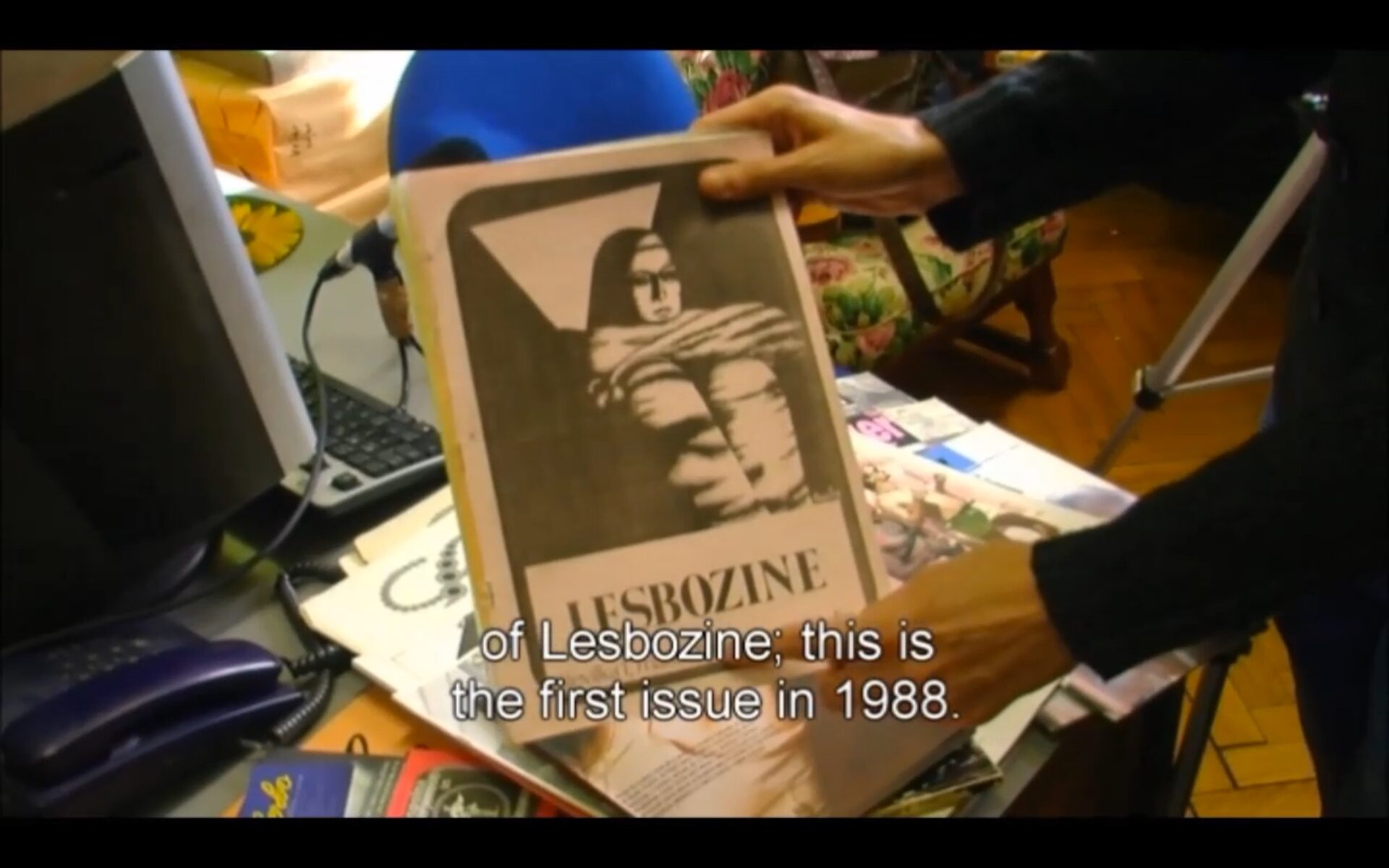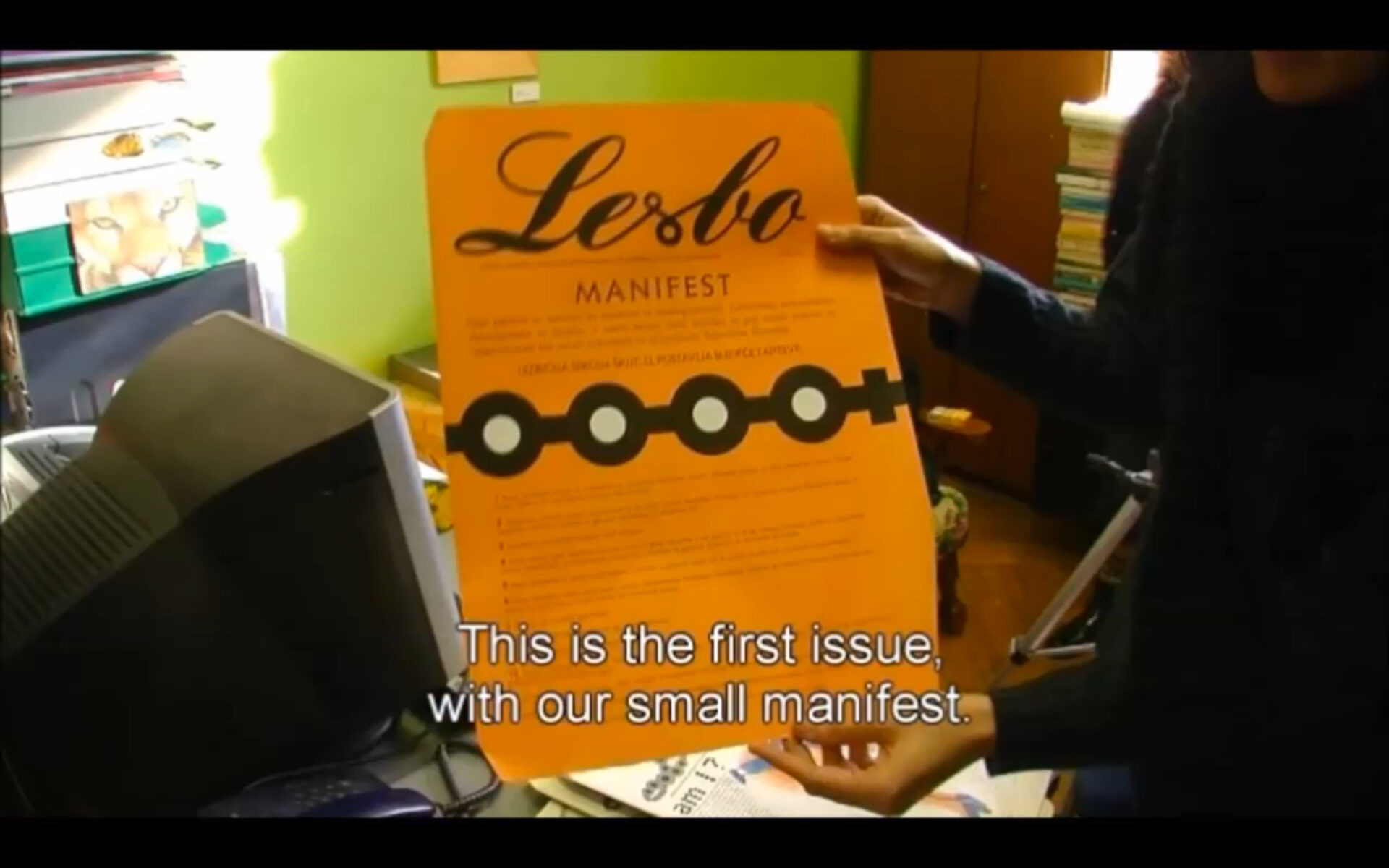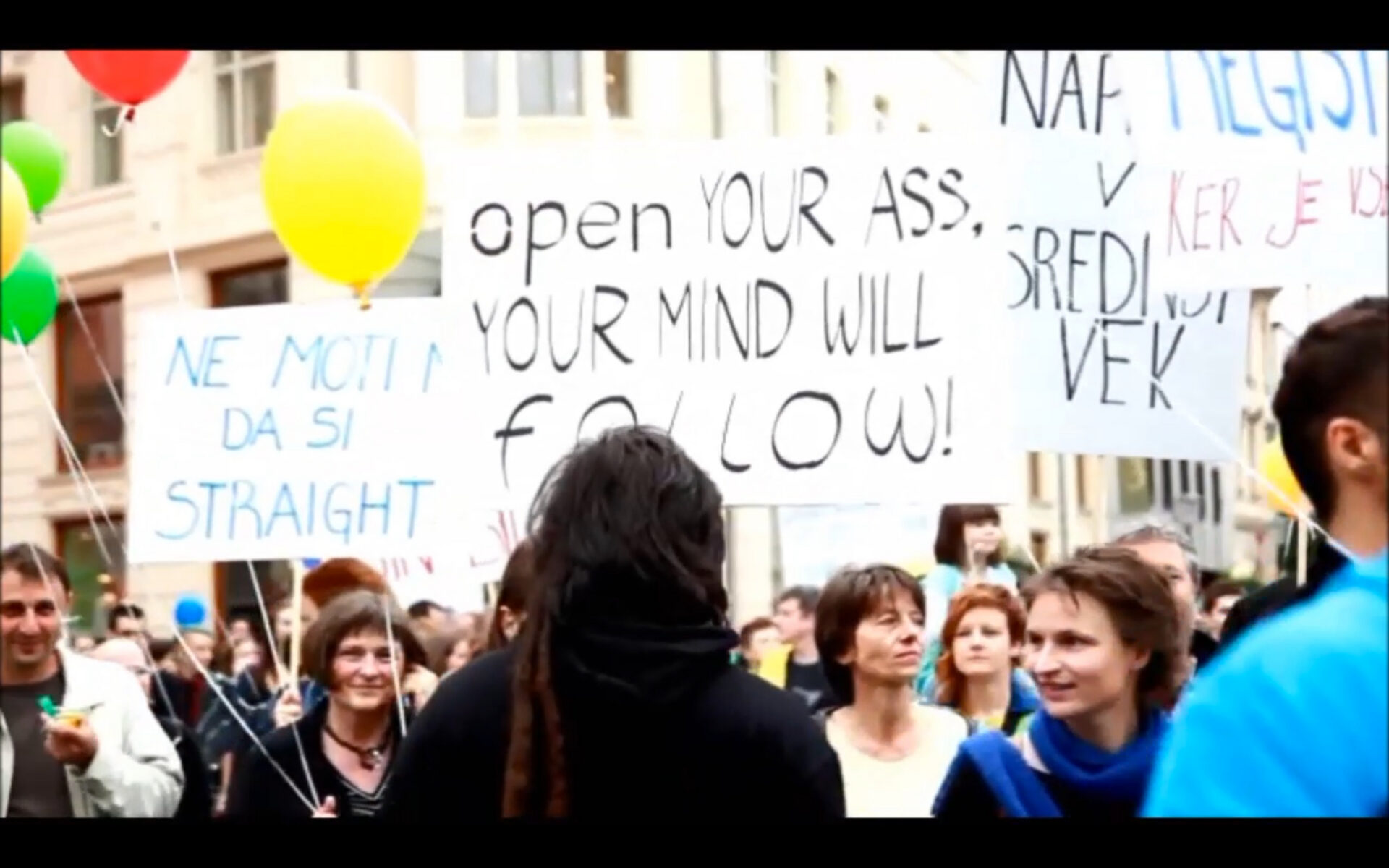
Do you know the history of Europe’s First Queer Film festival ever?
The Western and neoliberal construction of queerness tends to ignore or even take a condescending view of alternative histories and genealogies, often portraying non-Western queer people as nameless victims without agency.
Interview avec Marina Gržinić
Afin d’ouvrir le débat, l’équipe d’ « Our Story » invite la philosophe, théoricienne et artiste Marina Gržinić pour une discussion autour de son film Relations: 25 years of the Lesbian Group ŠKUC-LL (1987-2012).
La construction occidentale et néolibérale de l’identité queer tend à ignorer ou à poser un regard condescendant sur les histoires et les généalogies alternatives, réduisant souvent les membres des communautés LGBTQIA+ non-occidentales à des victimes sans nom et sans agentivité.
On December 15, Marina Gržinić will introduce her documentary at CINEMATEK via a short pre-recorded video (the artist’s visit to Brussels having been canceled due to COVID). Her lecture at ERG on the 16th – co-organized by the Our Story team – has been postponed to 2022.
Relations showcases the artistic and militant dynamism of the ex-Yugoslav LGBTQIA+ community and highlighting important historical milestones such as the Magnus Festival in Ljubljana (1984), the first international gay and lesbian film festival to ever take place in Europe.
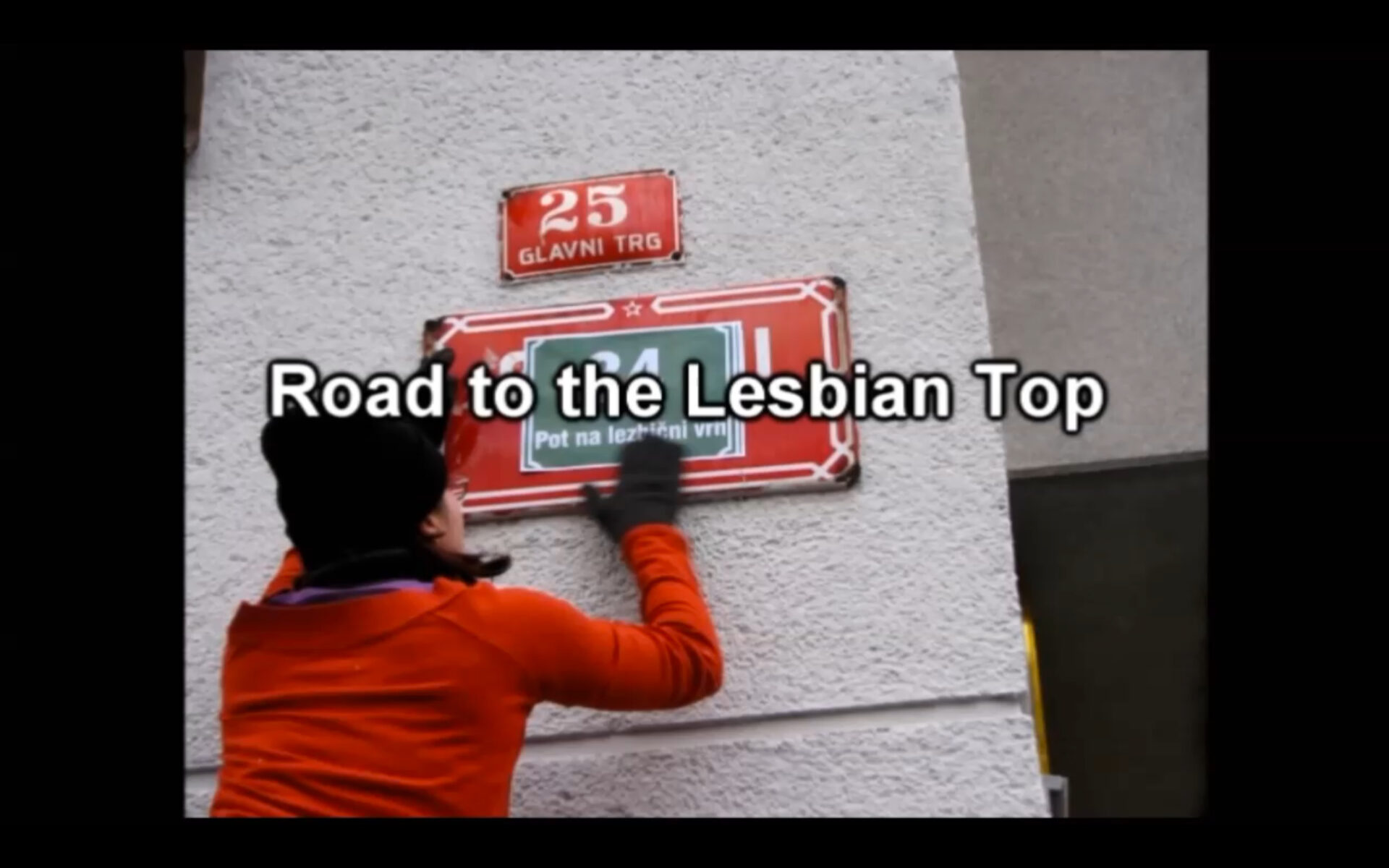
Co-directed with Aina Šmid and Zvonka Simčič, the film Relations grapples with one of the overarching questions of Gržinić’s theoretical and artistic work: How to "present and interpret the specific identity of other cultures and productions within the one-dimensional established framework of dominant Western culture?"
As a prominent figure of Ljubljana’s alternative art scene, Marina Gržinić has developed innovative research and practices, notably in the field of video art. Her work draws from a complex circuitry of concepts and ideas, approaching through decolonial and transfeminism lenses issues of media and technology, biopolitics, and necropolitics. A profoundly collaborative artist, Gržinić has since the early 1980s joined forces with art historian, artist, and freelance journalist Aina Šmid. Together, the pair has produced an impressive body of work of more than 40 experimental, political and socially engaged videos.
As the co-director of Relations and an insider of the local lesbian, queer and feminist milieu, can you tell us more about the film and what it is trying to accomplish?
Marina Gržinić: "The feature-length documentary Relations documents an important place in space and time. If I could generate a slogan on Relations from today’s point of view, I would say it is a dispositive for different struggles: feminism in former Eastern Europe, the LGBTQI movement in the former Yugoslavia, and the decolonial transfeminist WOC positions from Austria and beyond.
The film is about the lesbian group ŠKUC-LL (1987-2012) and about the lesbian movement in the former Yugoslavia in general. It is a project that contextualizes the movement and the LGBTQ community in terms of politics, economics, culture, art, and legal institutional structures.
This contextualization is two-folded:
- first, it follows the transition from decaying socialism to neoliberal capitalism,
- and then (in the 1990s) the transition to the current, bloodier form of neoliberal global capitalism.
The film includes an analysis of the continuation of the lesbian movement into the 2000s when Slovenia became a member of the EU (in 2004), and it includes an analysis of the "climate" that followed the discussions and rejection of new family law in Slovenia in 2012 (2). Pride parades on the territory of the former Yugoslavia are given a special focus.
The film includes interviews, documents, art projects, nightlife scenes, political performances, and critical discourse. It also talks about Europe, global world capitalism, the status of lesbians today and their relationships and alliances with feminism, gay, transgender, and queer identities and AIDS."
It aims to show the LGBTQ community’s struggle for visibility and is a testament to the incredible power of the lesbian movement, its artistic and cultural potential, its critical discourses and its emancipatory politics.
As one of your interlocutors, Tatjana Greif, says in the film, lesbian or minority initiatives in Slovenia are often brushed aside. How was Relations received there?
Paradoxically, Relations was a no-budget film, as it was made without a single cent of investment from the government or NGOs. Video-film docu technology is more than a tool; it is a social relationship, an institution of power, and a lever in the constitution of thought.
The film is an oral history that cannot be erased. However, at numerous presentations of experimental art in Ljubljana between 2010 and 2015, this work was never shown. Why, in fact? The reasons vary, but the most obvious one is the sheer sloppiness of the curators, a kind of "anything goes" attitude typical of our contemporary art institutions. That such a situation is possible is because we lack journalists and critical writers who could act as the critical eye of the public and expose such a situation.
Over the years, we have also created OTHER video works from scratch as Relations. This was done when there was no way to even access resources and support to create video work, so we had to film from scratch. These films have allowed us to survive in times of extreme austerity.
Can you tell us more about your use of queer methodology in your video work with Aina Šmid?
From 1982 on we engaged in POLITICAL LESBIANISM, in thinking non-heteronormatively as a practice, theory and dispositive. Maybe it is passé today as the scene is empowered but we also went a step further.
We question what art and media practices by and for women are, what gender means as a constructed category and how we relate to feminism as a political movement with a long history.
It has become clear that the umbrella term "woman" is not just a women’s issue or a sexual or gendered issue, and that gender is not binary, nor is it free of social and cultural construction. One of the questions that immediately arose in our work was that of feminism and its white ancestry, its Western history.
How do you approach this necessary de-centering of feminism and queerness from western canons? What sources do you draw inspiration from?
One possible response to the contradictory histories and agencies of feminism is the analysis offered by activist and theorist Luzenir Caixeta, who works with maiz, a self-organized association by and for migrant women founded 25 years ago in Linz, to help, educate, and counsel migrant women in Austria. Echoing the position of trans theorist Paul B. Preciado, Caixeta speaks of minoritized women, including migrants, trans* people, sex workers, lesbians, etc., as bringing about transformation in and of feminism. I
In her 2011 essay "Minoritized Women Effect a Transformation in Feminism", Luzenir Caixeta speaks of dissident movements within feminism that question its white, heterosexual, essentialist perceptions (based on characteristics considered natural elements of a category called "woman") and gave rise to dissident feminisms (that is, feminism in the plural!). To address the relations between labor and capital under neoliberalism, which enforces a persistent underfunding and marginalization of wo/men*, we speak of the proletariat of feminisms. Wo/men* who are considered non-citizens or second-class citizens are finding themselves in situations defined by hyper-precarity and constant exploitation.
These thoughts were presented in Graz at Schaumbad, a space run by a feminist Eva Ursprung, during a symposium that celebrated the 20 years of FACES. FACES is an international network for women in (new) media that began as a mailing list in Spring

Further reading:
- ARTmargins published an interviewof Marina Gržinić conducted by Raino Isto, during the retrospective Radical Contemporaneity: Marina Gržinić and Aina Šmid: 35 years of work revisited (1982 - 2017) curated by Aneta Stojnić at Kunstraum Lakeside (Austria).
- Marina Gržinić, Aina Šmid and Zvonka Simčič are working on a sequel to Relations, revisiting their subject ten years later in the context of the new far-right Janez Janša administration.
- Marina Gržinić works at the Institute of Philosophy of the Science and Research Center of the Slovenian Academy of Sciences and Arts (ZRC SAZU), and the Academy of Fine Arts in Vienna.
A selection of her books includes:
- New Feminism: Worlds of Feminism, Queer and Networking Conditions (co-edited with Rosa Reitsamer, 2008), -- - Necropolitics, Racialization, and Global Capitalism: Historicization of Biopolitics and Forensics of Politics, Art, and Life (co-edited with Šefik Tatlić, 2014),
- Border Thinking: Disassembling Histories of Racialized Violence (edited, 2018)
- Stories of Traumatic Pasts, Colonialism, Antisemitism, and Turbo-Nationalism (co-edited with Jovita Pristovšek, Sophie Uitz, and Christina Jauernik, 2020
LEXICON
Family Law: This law — the family code — would have granted registered same-sex partnerships the same legal rights as marriages and allowed individuals to adopt their same-sex partners’ biological children.
- Transfeminism: has been defined by scholar and activist Emi Koyama as "a movement by and for trans women who view their liberation to be intrinsically linked to the liberation of all women and beyond”.
- Biopolitics has been coined by Michel Foucault whereas Necropolitics comes from Achille Mbembe. As stated by Marina Gržinić in an interview with Sally R. Munt: biopolitics and necropolitics expose "the strategies and techniques through which life and death are managed, run, controlled by the state, by governments and by their various institutions."
- WOC: women of color.

